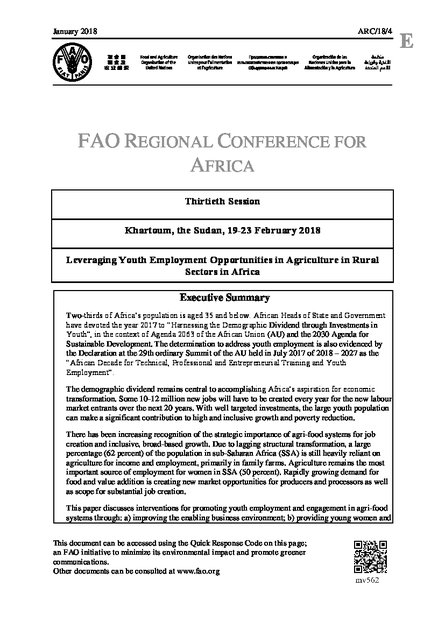
There has been increasing recognition of the strategic importance of agri-food systems for job creation and inclusive, broad-based growth. Due to lagging structural transformation, a large percentage (62 percent) of the population in sub-Saharan Africa (SSA) is still heavily reliant on agriculture for income and employment, primarily in family farms. Agriculture remains the most important source of employment for women in SSA (50 percent). Rapidly growing demand for food and value addition is creating new market opportunities for producers and processors as well as scope for substantial job creation.
This paper discusses interventions for promoting youth employment and engagement in agri-food systems through:
- improving the enabling business environment;
- providing young women and men with the right skills and education;
- increasing the active participation of youth in policy processes; and
- enhancing rural-urban linkages.
Links
Resource collections
- UN Habitat - Urban Response Collection
- Urban Response - Urban Crisis Preparedness and Risk Reduction
- Urban Response Collection - Community Engagement and Social Cohesion
- Urban Response Collection - Economic Recovery
- Urban Response Collection - Environment and Climate Change
- Urban Response Collection - Housing, Land and Property
- Urban Response Collection - Urban Crisis Response, Recovery and Reconstruction
- Urban Response Collection - Urban Resilience